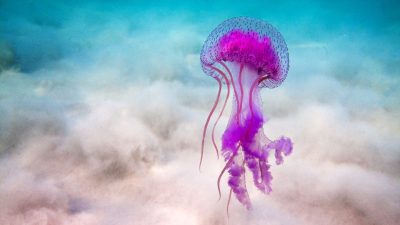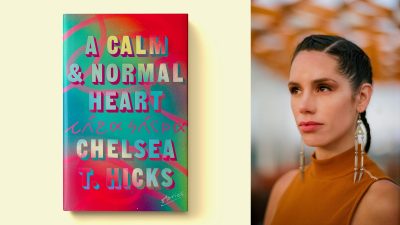On Jellyfish and the Fear of Touch
Early in the trip, the jellyfishes begin to take on the quality of metaphor.
Najya Williams Believes Language Is a Place of Struggle and Resistance
In this interview, Catapult’s head instructor, Gabrielle Bellot, talks with instructor Najya Williams about Black resistance, her literary inspirations, and exploring nontraditional forms.
Javier Sinay Believes We Have to Make Our Stories More Complex
In this interview, Catapult’s head instructor, Gabrielle Bellot, talks with instructor Javier Sinay about a Latin American literary genre called “crónica.”
Chelsea T. Hicks Wants More Indigenous Poets to Write from Their Own Languages
In this interview, Catapult’s head instructor, Gabrielle Bellot, talks with instructor Chelsea T. Hicks about Indigenous poetry, colonialism, languages, the process of “rematriation,” and more.
Writers Who Read: A Conversation on Body Horror with Julian K. Jarboe
“If you’re interested in responding to difference and change in a fantastic way, body horror fiction can be a great way to push through the stereotypical or conventional roles of monstrosity.”
Kamala Khan, Ms. Marvel, and Me
I’m still drawn to stories about teenage girls’ lives, real or fantastical, and a part of it is trying to glimpse a world I never fully got to walk in.
Rewatching ‘Freaks and Geeks’ in a Polarized America
For all the pain, there is also beauty in the margins those outside of them may never understand.
The Year of Breath
I try to feel my lungs expanding and contracting, just to make sure they still are. There is something soothing, like the indigo of a fading day, in that reminder.
Living in Dread of the Next Name We’ll Chant
There is hope in the size and power of our protests, hope that our message will truly, finally be heard—but whether it will be understood in the hearts that need it most is a much harder, scarier question.
Why Do We Read Plague Stories?
They suggest that we can get through adversity, that things could always be worse. And sometimes, the best of these stories are genuinely full of love.










